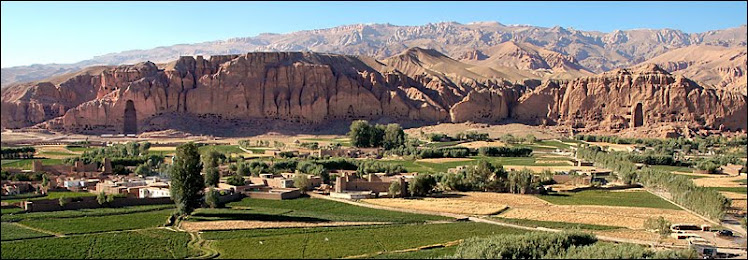Afghanistan's 'green on blue' collapse of trust
As the number of Nato troops killed
by their Afghan counterparts continues to rise - attacks known as "green on
blue" - many are left wondering if the breakdown of this relationship will
result in an early exit for international forces in Afghanistan.
In a circle of trees at the heart of the international mission's headquarters in Kabul, there are 50 flags. One for each of the coalition countries that make up the force that is fighting the Taliban.
Under the branches, in the early morning shade, a few hundred soldiers stand still, listening, as the names of that week's dead are read aloud.
The first was that of a Jordanian soldier, then a British sergeant and two British captains. Next an American gunner's mate, and two more sergeants.
An Afghan officer stepped forward. He read just a number: 31. The service is short, it barely lasts five minutes. There is not enough time to read the names of all the Afghan dead.
Some names give more pause for thought than others. Sgt Gareth Thursby and Pte Thomas Wroe were killed earlier in the month in Nahr-e Saraj in Helmand.
They were not killed by the Taliban, but by an Afghan policeman they were serving alongside.
As the number of these "green on blue" or insider attacks has risen, British soldiers have taken extra precautions. One is to be armed at all times, even when men are sleeping. These men are called "guardian angels".
In the Nahr-e Saraj killings the Afghan policeman looked like he was in pain. The British soldiers reacted with compassion. The guardian angel put down his weapon as he tried to help - and that is when the killer, the policeman, struck.
"Murder" is a word you rarely hear in war. Killing is part of the business, and is viewed by most as lawful according to international protocols.
But recently, the commander of international forces here, General John Allen, sat opposite his Afghan counterparts and said that while his troops were prepared to die for Afghanistan, they were not prepared to be murdered.
A quarter of all British soldiers who have been killed here this year were killed by Afghan police or army colleagues.
Some were Taliban infiltrators. Others, men with a grievance, who shot those they served with in the back, or in the face, or somewhere their body armour and helmets offered no protection.
Trust is collapsing between these two forces, who should be united in their fight against the Taliban.
The international mission suspended many routine joint
patrols with Afghans as it sought to stop the attacks. A huge step, since Nato's
strategy relies on training Afghans to fight the Taliban when most international
forces leave at the end of 2014.
Senior generals and the Ministry of Defence claimed that this was no big deal, but few believe them.
One senior diplomat told me the switch would go down in the history books.
It could be a "game changer", he said. Afghan generals were furious - they felt abandoned and claimed a propaganda victory had been handed to the insurgents.
The Taliban may be cruel but they are also adaptable. "Crafty" is the word one marine used to describe them when speaking to me a week or so ago. He had just lost two colleagues to Taliban grenades.
When the insurgents realised they could not beat the coalition in a head-on battle, they introduced roadside bombs.
And now they realise that this war, already deeply
unpopular at home, can only become more so if Afghan troops keep killing
British, American and other servicemen.
"What do you say to the wife of a soldier killed by an Afghan soldier," a coalition general said to me last week. "There is nothing you can say."
The fear among those leading this war is that the relentless green on blue killings will accelerate the exit of troops.
The public is already sick of these killings and they could provide Western politicians with a good excuse to quit. After all, why hang around for another two years if the Taliban cannot be defeated militarily, and your allies keep shooting you dead?
A substantial and early drawdown of British troops is already being privately considered.
President Karzai might not realise it, said another diplomat, but you cannot underestimate Western fatigue with this war and with corruption here.
There is a shift taking place in the coalition's vision of the future of Afghanistan.
Speak to senior generals and diplomats and they have a view of what the country looks like after they have gone. Kabul and other cities remain in government hands, the east will remain as lawless as ever, and the south, well… "there will have to be some accommodation in the south".
What does that mean?
It means that the Taliban, in some areas, will be back for good.
One of the most senior diplomats here sat in my garden recently and sighed.
This is a war of diminished expectations and one where the West will never utter the word "victory".
He said, "Do not ask me if it was worth it, because it was not."
So what, I asked, was the best possible outcome?
He replied, "All we want is a country that we can forget about."

No comments:
Post a Comment